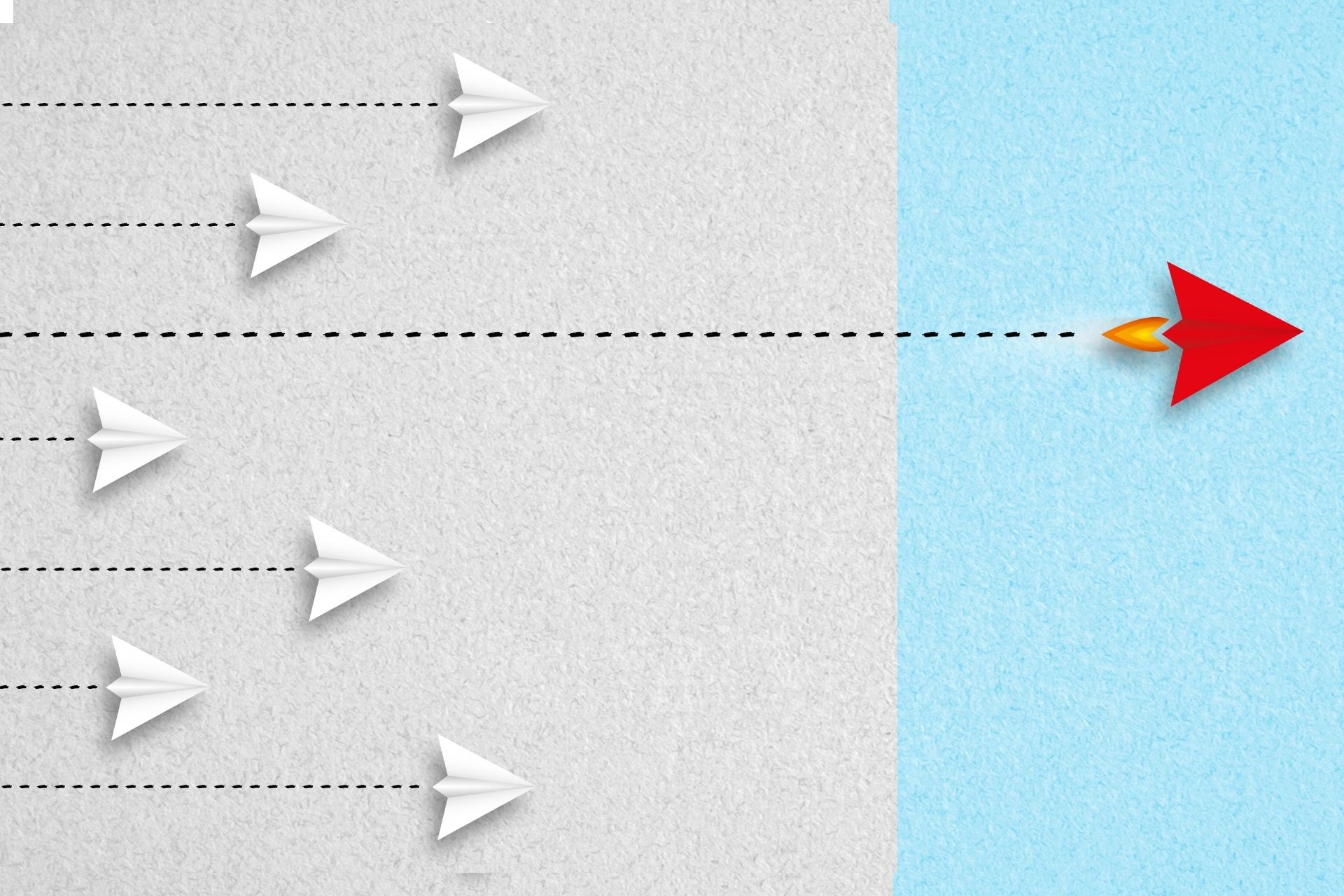With its disruptive impact on the world of work, the pandemic challenged already crumbling ideas of what career growth looks like and pushed people to re-evaluate who they are, what their values are, and how important alignment of personal and professional goals is to them. In terms of professional development, the entire world has been going through a crisis not unlike the quarterlife one. It wasn’t a surprise, then, when on my LinkedIn feed I came across a recent article published in Forbes that highlights why 2022 is the year to hire a career coach.
As a career coach myself, I’ve seen how working with one can empower a person to design and live a life they enjoy, a life that allows for professional growth and personal well-being. Not once or twice have I thought to myself how beneficial it would’ve been if I’d had access to a coach early in my career, as I was going through my own quarterlife crisis! Before I highlight how working with a coach can benefit you, however, let’s start with a definition.
What Is Career Coaching?
The International Coaching Federation (ICF) defines coaching as “partnering with clients in a thought-provoking and creative process that inspires them to maximize their personal and professional potential.” At the core of this definition is the understanding that you – the client – are in the driver’s seat. You have the insights and potential to move forward on your career path in a way that makes the most sense to you, and what a career coach can do is empower you to clarify your values, tap into your strengths, explore curiosities, and identify possibilities.
You are the one to craft and own your professional story. A career coach asks powerful questions to bring your insights out; she shares tools and resources to help you act on those insights.; and she guides, supports, and celebrates you along the way.
In my experience, when a young professional schedules a coaching appointment, most often the intention is to get advice on tangible items, including LinkedIn profiles, resumes, cover letters, responses to common interview questions, and outreach templates to use while networking. The above are all critical to an effective job search but they are not what career coaching is about. A coach can help you with these items, of course, but a more meaningful interaction with one includes a deep dive into your motivations, strengths, curiosities, and aspirations.
Not to mention that advice on how to write a strong resume, how to network effectively, and how to ace your interview abounds. Whether it’s articles, blog posts, books, LinkedIn Learning courses, or podcasts, if you know how to sift through all the information out there, you can find decent tips on any stage in the job search process. Where a career coach makes a difference is in allowing space for you to explore the gap between where you currently are and where you’d like to be so that you can develop an intentional strategy of how to close that gap.
The bottom line is that having access to quality career coaching support is an integral aspect of growing as a professional and establishing a path that is meaningful, allows you to use your skills to do what you love doing, and aligns with your values. You don’t need to be established in your career, be in a leadership position, or even have an idea of what you want out of life, and career, to seek out and benefit from professional coaching. In fact, the earlier you work with a coach, the more likely it is that you’ll have the insights and skills to navigate the journey effectively.
The same way you build a network before you need a network, you want to partner with a career coach before you need one. Many of my clients delay reaching out to a career coach until they have a clear idea of what to do. But it’s a conversation with a coach that can bring about the clarity you seek before you start taking steps to move onto the next part of your journey.
So how can working with a coach benefit you?
Partnering with a career coach can help you:
- Clarify your career vision: whether you are still exploring options, wanting to switch careers, or preparing to advance in your current space, a coach can help you clarify what your desired path is. Even better, you get to explore what’s possible in a safe and supportive environment.
- Identify your strengths: knowing how you bring value is critical to knowing what your professional story is; once you know your strengths, you can explore ways to apply them for personal and professional growth and development.
- Craft and practice delivering your professional story: knowing who you are and what you are motivated to do is not enough; you also need to be able to communicate that to potential employers, contacts, or clients. By reflecting on insights that come up in coaching conversations, you’ll start building a storybook to refer to as you cultivate meaningful relationships, pursue opportunities, and share your value-add.
- Focus on next steps: identifying the ones you need to work on between coaching sessions and the longer-term ones.
- Support you as you go through the steps, which could include but are not limited to:
- Creating a list of target positions and/or employers and researching possibilities
- Developing an intentional strategy to grow your network
- Optimizing your online profile and engagement
- Evaluating options and how they align with your values
- Negotiating offers, whether new jobs or promotions
- Strategizing for your first months in a new job or role
- Focusing on self care and well-being
A partnership with a career coach also ensures accountability. Whatever else is happening in your life, you know you have that one hour to focus on your life and career.
So if you
-
- Have no idea where to start
- Feel stuck and unfulfilled in your current role
Desire a career switch
- Want to advance in your current career, or
- Seek balance in professional and personal responsibilities
It’s time to reach out to a career coach and schedule that first conversation. Your future self will thank you. Before you do that, however, keep in mind that your coach will
- ask powerful questions
- share observations, and
- provide tools and resources.
And your coach won’t:
- Tell you what to do,
- Do the work for you, or
- Find you a job.
At the end of a coaching conversation, your coach and you will discuss possible actions you could take as a result of the learning that took place during the session. Most of the work happens outside of the coaching session; it’s where you apply the insights you came up with during the session to explore, advance, and grow. Career coaches don’t give you the answers; they help you gain the confidence and insights to discover your own answers, the answers that clarify what makes the most sense to you as a next step
Remember that professional development is a lifelong process, a process that requires patience, commitment, and perseverance. I know that the process can seem overwhelming and scary, but you don’t have to go through it on your own. Partnering with a career coach can make the experience meaningful and rewarding.
If you are ready to do the work and commit to moving forward but are still not sure if career coaching is the best next step as you go through a quarterlife crisis, consider scheduling a free 15-minute consultation call with one of our career coaches. We’ll be happy to respond to concerns or curiosities you may have, so you can determine if this is the best fit.
If you’re interested in scheduling an appointment or you’d like more information, please call us at 1-844-QLC-TALK (1-844-752-8255) or email us here.
Publisher: Source link






